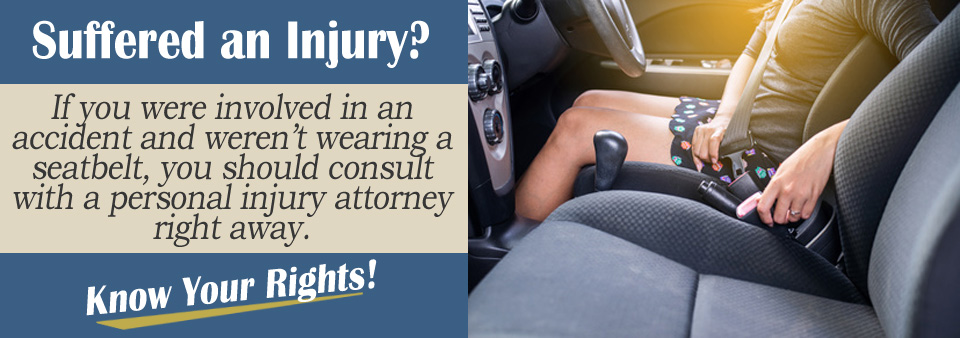If you were injured in a car accident, you will want to consider filing a personal injury claim against the other driver with their insurance company. You may be awarded compensation that can help you pay your medical bills as well as damages for general pain and suffering and to make up for any lost wages due to missed work. If you were not wearing a seat belt at the time of the accident, it may affect your personal injury claim.
Seat Belt Laws by State
In the United States, legislation surrounding seat belts is divided into two categories:
- Primary enforcement means that a police officer may pull you over if they see that you are not wearing a seat belt.
- Secondary enforcement means that the officer can only cite you for a seat belt violation if you had also violated another traffic law first.
Most other states have some variation of a law for seat belts depending on a person’s age, with separate laws for children. For example, in Colorado, all people must wear a seat belt in the front seat and passengers under 16 years old must also wear a seat belt in the car’s rear seats.
In Michigan, all passengers from ages 8 to 15 must wear a seatbelt in both the front and rear seats. Children under 4 must ride in a car seat, and children under 8 must ride in a booster seat.
New Hampshire is currently the only state that does not require adults to use seat belts. Children 17 and under have a separate child safety restraint law and must wear seat belts at all times.

Wearing a Seat Belt
Seat belts have statistically reduced injuries and fatalities related to car accidents by over 50 percent. It is important to your safety that you wear a seat belt at all times while in a car as either a passenger or a driver. Aside from potentially causing harm as well as breaking the law, if you get into an accident while you are not wearing a seat belt, it could greatly affect your personal injury claim.
Whether you intend to file a personal injury claim with your own insurance or the insurance company of the other driver, the fact that you were not wearing a seat belt when the accident took place could affect the amount of compensation you receive under comparative negligence. Comparative negligence means that your damages will be reduced by the percentage of which you were responsible for your injuries. By not wearing a seat belt, you made the choice to statistically increase your chance of serious injury. The insurance companies will use this information against the outcome of your personal injury claim.
Personal Injury Attorney
It may be a good idea to consider hiring a personal injury attorney. An attorney can help you look over the facts of your case and ensure that your personal injury case goes smoothly and has the best chance for success so you can receive the compensation you need and deserve.